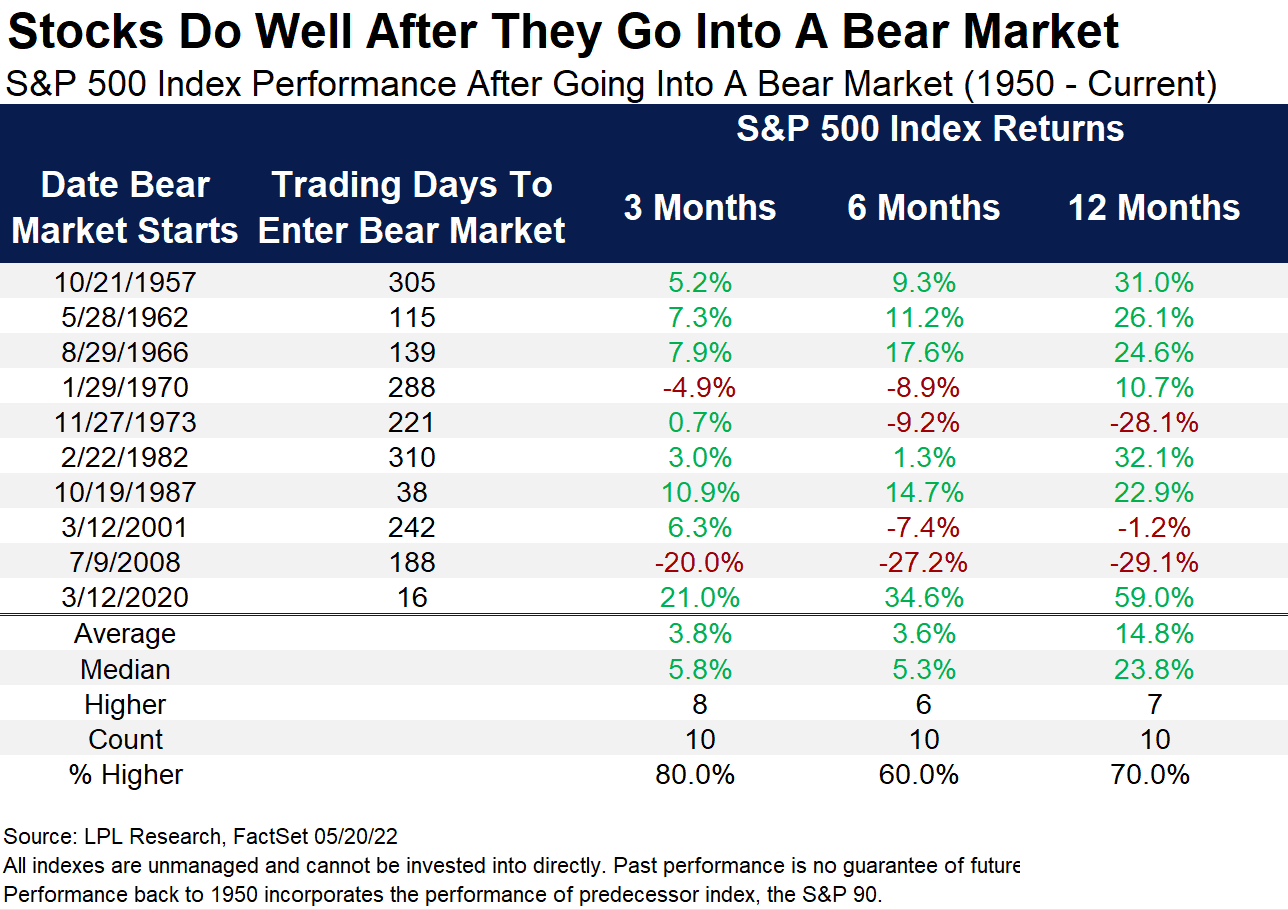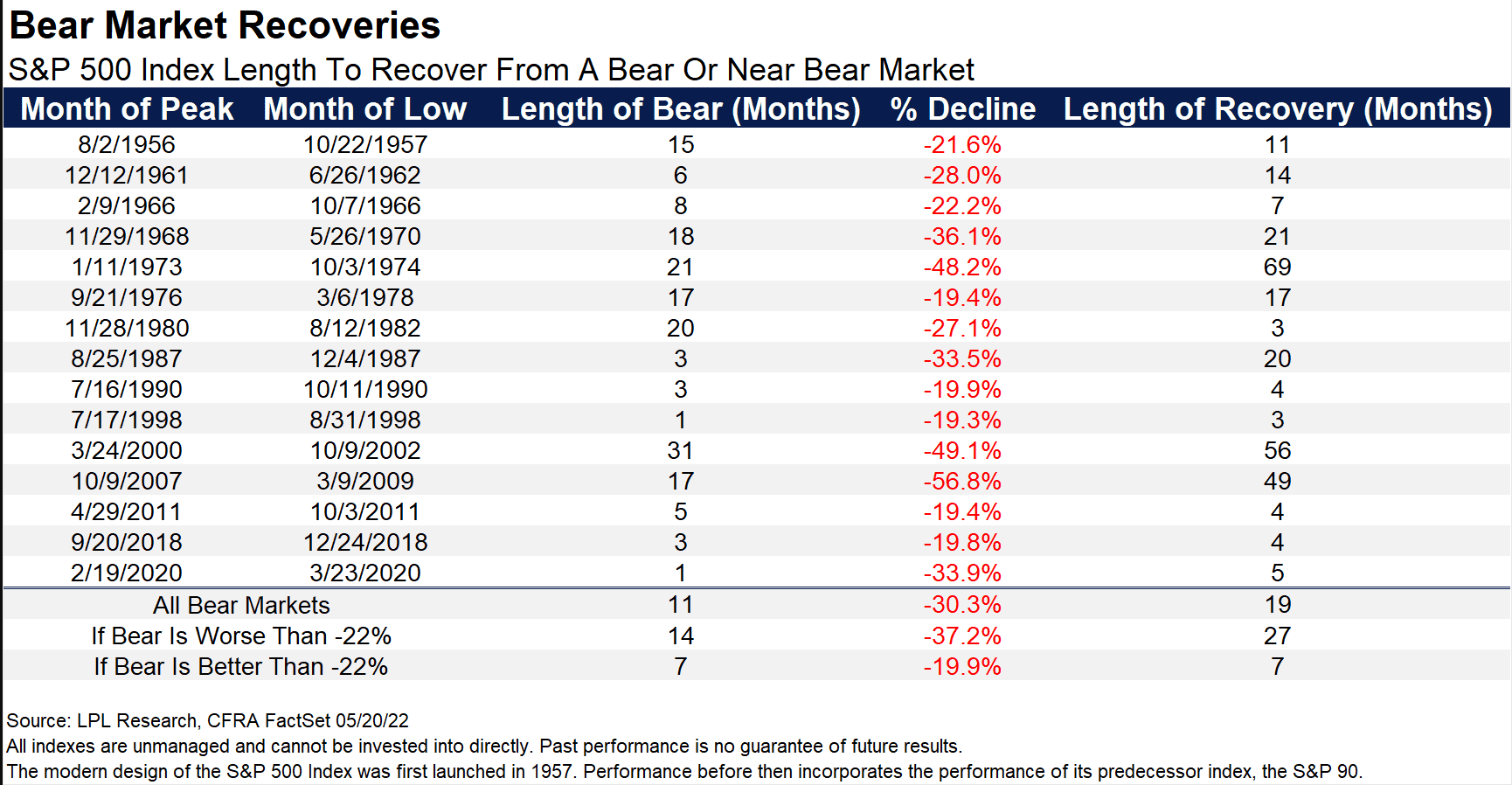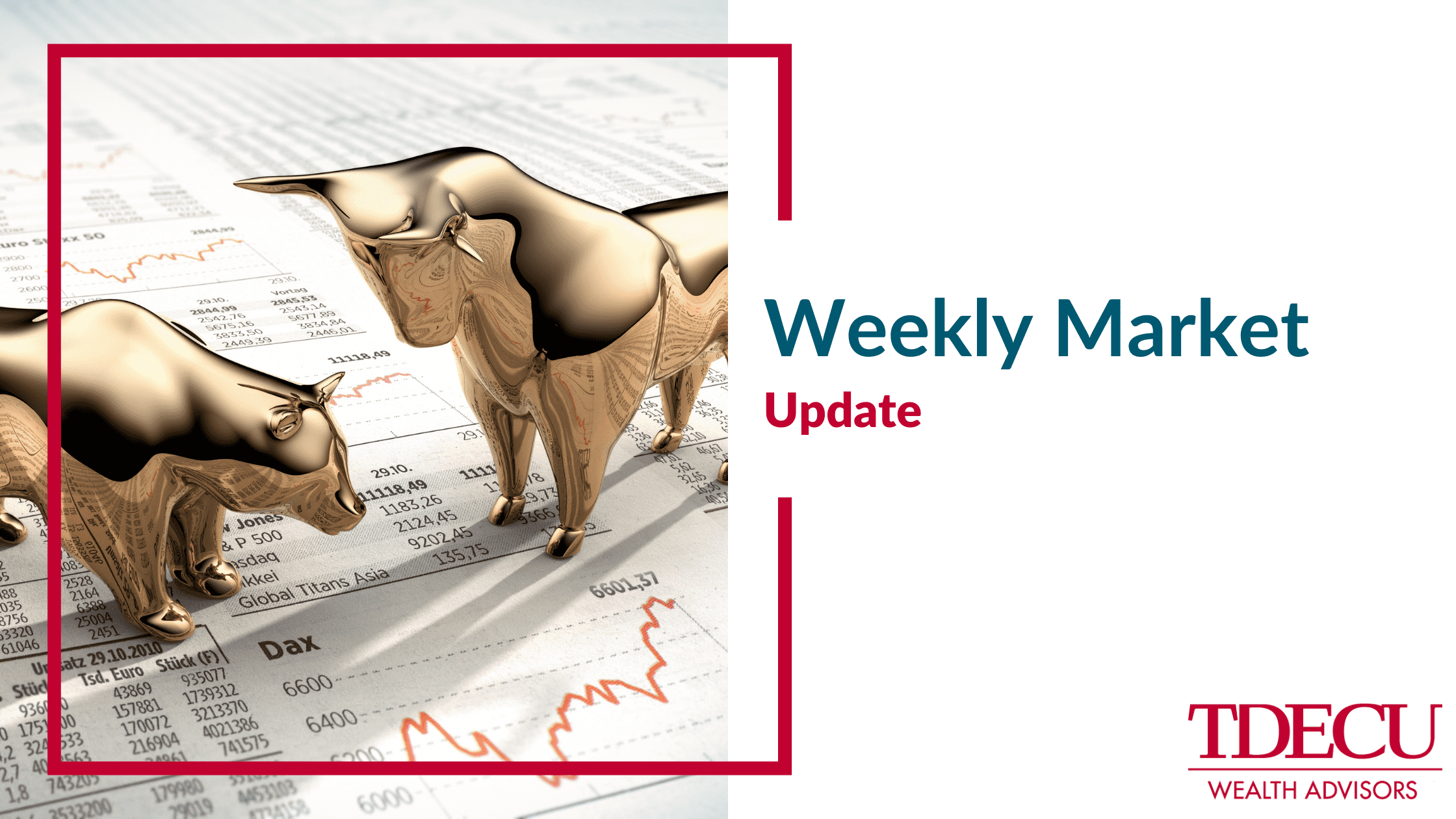“Life is like riding a bicycle. To keep your balance, you must keep moving.” – Albert Einstein
The S&P 500 Index was down more than 20% on an intraday basis on Friday, but managed a huge rally late to avoid closing down 20% and moving into an official bear market. With the S&P 500 down 18.7% though (as of Friday’s close) a bear market is still quite possible.
Here are four things to know should stocks go into a bear market.
One popular question has been what happens after stocks go into a bear market? “As rough as bear markets are, the good news is the future returns really improve once stocks are down 20%,” explained LPL Financial Chief Market Strategist Ryan Detrick. “In fact, a median gain of nearly 24% a year after a bear market starts may help some beaten-down bulls confidently stay the course.”

One more look at the table above shows that only three times were stocks lower a year later and all were associated with major recessions. We do not see a recession on the horizon, which could be a clue returns could be strong going out a year.
What about how quickly after a bear market starts do stocks finally stop going down? This one has something for everyone, as the least ever was only 1 day in 1957, while it took 19 months for the bleeding to stop in the early 2000s. Once again though, if the bear happened around a recession, the weakness usually continued much longer and vice versa. 1962, 1966, and 1987 all recovered quickly and didn’t happen in a recession. Meanwhile, stocks did manage to bottom quickly during the recessions of 1957 and 2020. While the recessions of 1974, the early 1980s, dot com burst, and the financial crisis all saw the damage continue for much longer.

As shown in the LPL Chart of the Day, it took about 19 months on average for stocks to recover their bear market losses. The good news is the past three bear markets recouped losses in 5, 4, and 4 months. Additionally, if the bear market was worse, it took longer to recover. This was not very surprising, but when the bear market decline was less than 22%, it took only seven months on average to make up the losses versus 27 months if the bear was worse than -22%. Should this bear market end soon (our base case), it could bode well for a quicker recovery once again.

Lastly, there have been a lot of bear markets over time, but one thing that has always happened is stocks have eventually come back to new highs. We do not know when this one will, but we don’t expect this incredible streak to end now.
Investors with longer-term horizons should use this weakness as an opportunity, or Einstein said in the above quote, we’ve got to keep our balance and move forward.
IMPORTANT DISCLOSURES
This material is for general information only and is not intended to provide specific advice or recommendations for any individual. There is no assurance that the views or strategies discussed are suitable for all investors. To determine which investment(s) may be appropriate for you, please consult your financial professional prior to investing.
Investing involves risks including possible loss of principal. No investment strategy or risk management technique can guarantee return or eliminate risk in all market environments. For more information on the risks associated with the strategies and product types discussed please visit https://lplresearch.com/Risks
References to markets, asset classes, and sectors are generally regarding the corresponding market index. Indexes are unmanaged statistical composites and cannot be invested into directly. Index performance is not indicative of the performance of any investment and do not reflect fees, expenses, or sales charges. All performance referenced is historical and is no guarantee of future results.
Unless otherwise stated LPL Financial and the third party persons and firms mentioned are not affiliates of each other and make no representation with respect to each other. Any company names noted herein are for educational purposes only and not an indication of trading intent or a solicitation of their products or services.
All information is believed to be from reliable sources; however, LPL Financial makes no representation as to its completeness or accuracy.
Securities and advisory services offered through LPL Financial, a registered investment advisor and broker-dealer. Member FINRA/SIPC.
Tracking # 1-05285049
